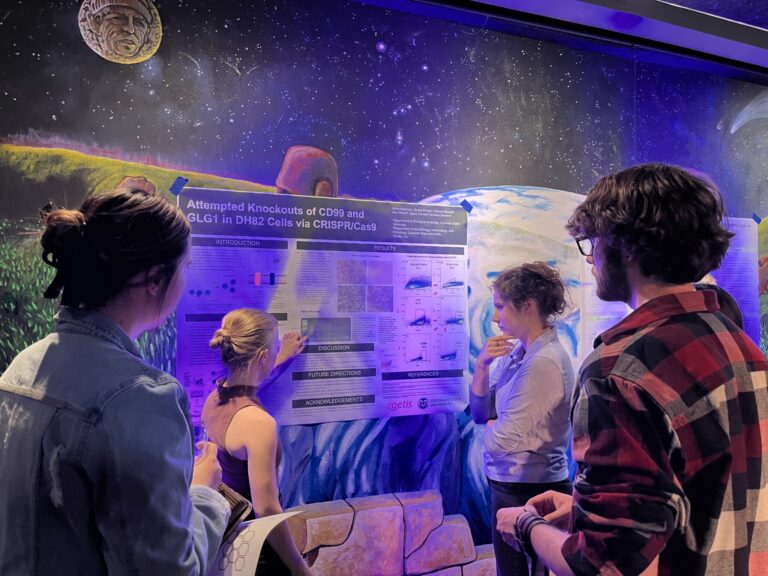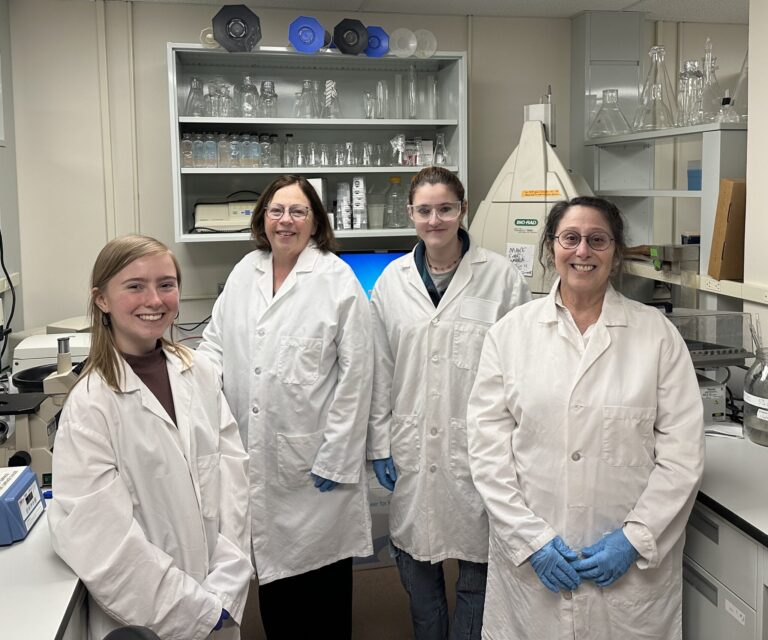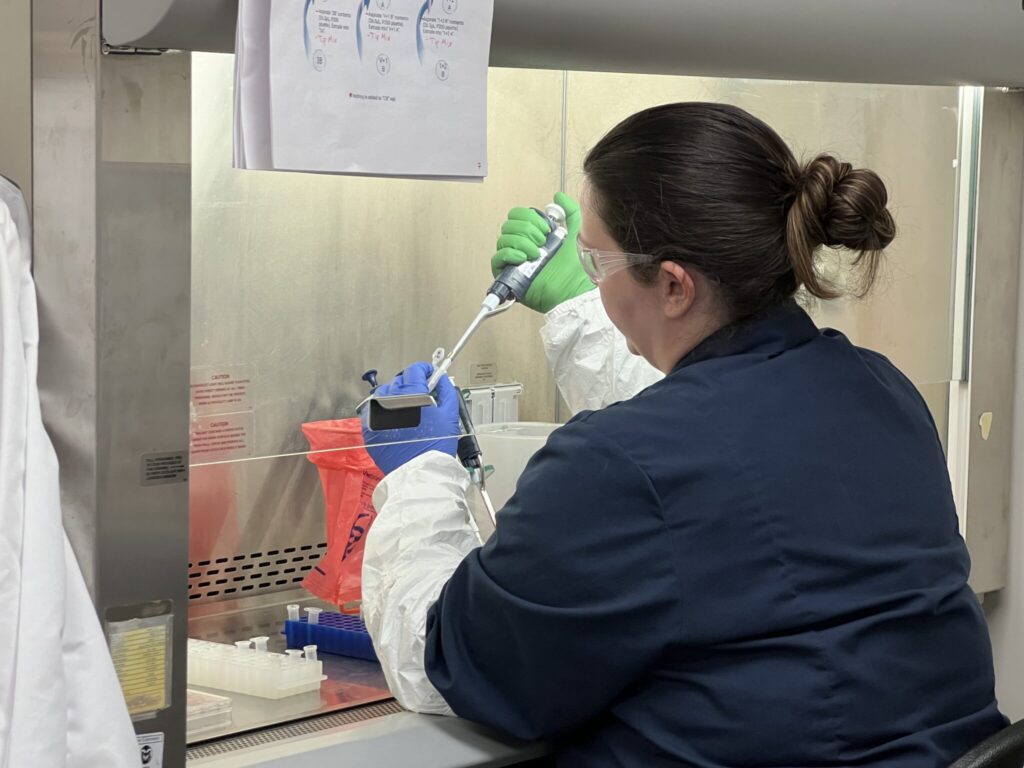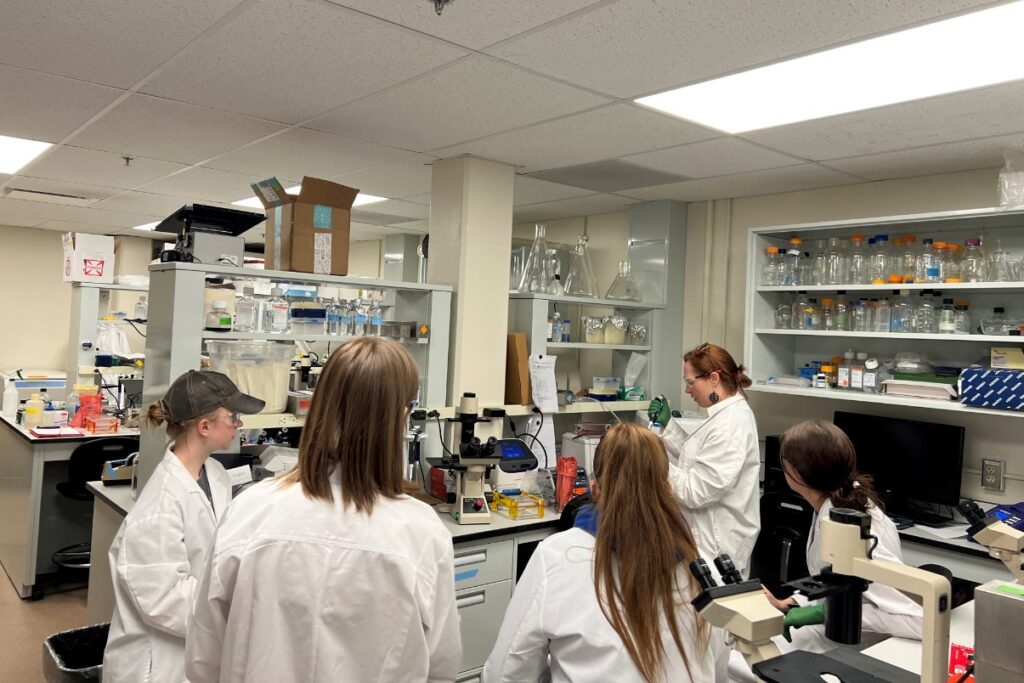
When Reba Huffman first saw that MIP401: Laboratory Research Methods in Microbiology was partnering with Zoetis, she thought it would be a behind-the-scenes partnership.
“I was very wrong. Zoetis provided us not only with materials but with mentors who were happy to help us. They helped us do some of the protocols and were always happy to give us advice and answer our questions,” said Huffman, a biomedical sciences junior, concentrating in Microbiology & Infectious Disease.
This spring semester, the Course-Based Undergraduate Research Experience (CURE) Lab, taught by Assistant Professor Grace Borlee, partnered with the animal health biotechnology company.
“Zoetis chose Fort Collins to open our Incubator site five years ago due to its proximity to Colorado State University and the potential to collaborate in our research that ultimately advances care for animals,” said Brie Wright, a Senior Scientist with Zoetis and CSU alum (’15). “That sentiment motivated us to partner with Dr. Grace Borlee in the CURE lab, not only to introduce undergraduate students to careers in animal health/biopharma, but also to foster an even stronger relationship with CSU.”

Clustered regularly interspaced short palindromic repeats (CRISPR) is a technology used to selectively modify the DNA of living organisms. “While science moves slowly sometimes, it is amazing to me that we understand CRISPR so well and can use it so easily after only a few decades of its discovery,” said Anna Hartwick, a junior studying biological sciences with a microbiology minor.
“I wanted the research topic to be on something that would benefit both the students and Zoetis,” said Borlee. “I wanted the learning to be bidirectional.”
Zoetis employees provided expertise on CRISPR technology, cell culture and flow cytometry. Wright said seven colleagues volunteered anywhere from 2-20 hours of their time to make this CURE a reality. They have been interested in CRISPR gene editing techniques to propel their research and utilized the CURE lab as proof of principle to test certain variables in a gene editing protocol.
Hartwick said, “Not only did Zoetis provide lab materials and guidance, but they also provided invaluable insight, knowledge and enthusiasm to our projects. This class would not have been the same without them.”
“My favorite things about the MIP 401 CURE lab directly resulted from working through my least favorite things,” said Lisa Shugarts, a microbiology student. “The frustration of assays not going as expected allowed me to deeply research concepts and gain an understanding I might not have had if things had gone ‘perfectly’.”
CURE classes engage students in hands-on lab experiences while helping them gain valuable research and technical skills.

Students met with older members of the community, who were recruited from the Fort Collins Rotary Club with assistance from the CSU Center on Health Aging, every two weeks to converse about CRISPR. The community members provided an additional layer of depth in terms of informal mentorship, allowing the students to practice presenting their research projects and improving their science communication skills.
The class culminated in a research poster presentation at Avogodro’s Number, held in conjunction with Fort Collins Science on Tap, a local program that aims to connect science and community. Students presented their semester-long research posters, followed by a variety of science-themed activities and CRISPR trivia.
The students and Zoetis say the experience was invaluable, both in the skills they learned and the relationships they created.
“I gained an immense amount of knowledge and skills in a short 16 weeks, and I’m thankful for this amazing experience. I loved learning something advanced and new every time I stepped into this class,” said Brooke Shenkenberg, a graduating Biomedical Sciences major with a Microbiology and Infectious Disease concentration.

A big goal for Zoetis was the development of partnerships and relationships with Colorado State University and the students that participated in the lab. “Some of these students may be future employees or interns of Zoetis,” said Wright. “Giving back is an important value of Zoetis and seeing how the students responded in discussions and benchwork was remarkable. It was an incredibly special experience for everyone involved.”
Shugarts said that after completing this CURE lab, she is more confident to ask and answer her own research questions because of the skills she gained. “Working alongside an industry partner like Zoetis reinforced that the knowledge and experiences I’m gaining at CSU are relevant and transferable. I learned about myself and my abilities as much as I did about CRISPR during this semester.”
Borlee said the success of the spring class is a testament to the amazing group of nine undergraduate students and their wonderful GTA Andrea Russell. “The collaboration with Zoetis added depth to the CURE lab in ways that I could not have imagined. This was the most intense lab in terms of the amount of uncertainty but hands down the most rewarding experience I have had teaching to date.”